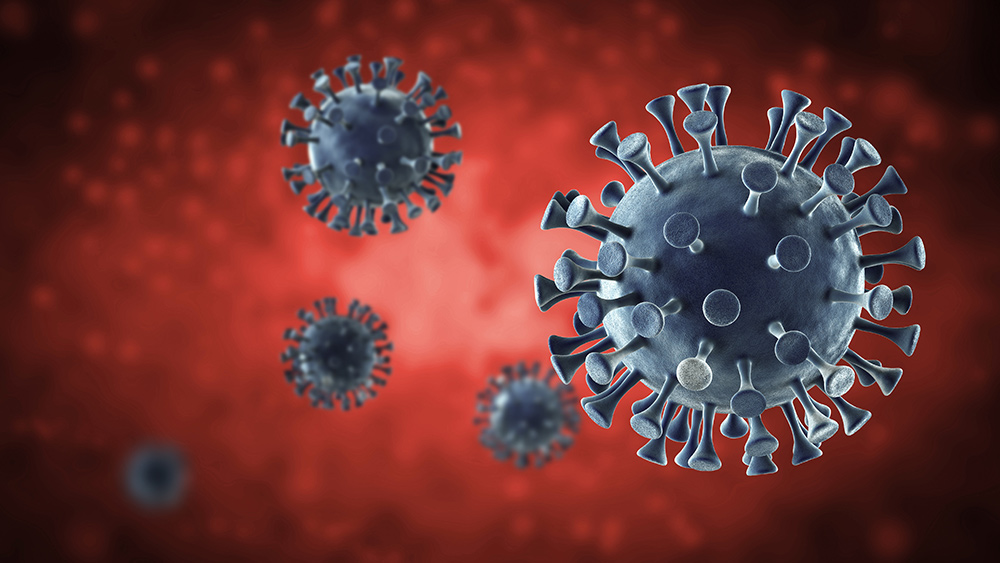Keep your distance: Coronavirus can reach farther than 2 meters and linger for up to 3 days
04/09/2020 / By Franz Walker

In the months since it first emerged, scientists have learned many things about deadly coronavirus behind the global pandemic. A new study revealed that it can stay on plastic for 72 hours — three days — and that keeping two meters (six-and-a-half feet) apart may not be enough.
A television new program set to air on U.K. network BBC2 this Thursday has doctors explore the latest information about the virus. Here, they talk about some of the latest information about the coronavirus and why it spreads so easily. This includes how it can travel further than previously thought and linger on surfaces for days.
Droplets can travel two meters
Most social distancing guidance advises people to stand at least two meters, or six-and-a-half feet apart. This rule mostly comes from experiments conducted in the 1930s that suggested that droplets released from coughing and sneezing can travel to about that distance.
However, it looks like this data may be outdated – an experiment by the U.K. Health and Safety Executive, that’s to be shown on the program, demonstrates just how far coronavirus particles can spread.
In the experiment, a specially rigged medical mannequin, named Violet, coughs up a liquid filled with a special dye that shows up under ultraviolet light. During the experiment, traces of the dye were found on the ceiling and wall that were at least two meters away.
“You see thousands of droplets coming out of Violet’s mouth, with some reaching the ceiling and the far wall, which is at least two meters away,” says Dr. Guddi Singh, a London pediatrician.
“Some of these droplets land on my hand, even though I am not in the direct line of the cough,” explained Dr. Singh. “If these droplets contained the virus, I would be infected. It is incredibly contagious.”
The results of the experiment are line up with research published in the Journal of the American Medical Association. The study, led by Lydia Bourouiba, an associate professor at the Massachusetts Institute of Technology, notes that the droplets from coughing and sneezing can be spread by up to eight feet. Bourouiba cites a 2020 report from China that showed that virus particles could be found in ventilation systems in patients with the virus.
“There’s an urgency in revising the guidelines currently being given by the [World Health Organization] and the [Centers for Disease Control and Prevention] on the needs for protective equipment, particularly for the frontline health care workers,” stated Bourouiba.
Coronavirus lingers on plastic for 72 hours
One other factor that aids the spread of the virus is just how long it can survive outside the human body. A recent study from the New England Journal of Medicine shows that the coronavirus can survive on plastic surfaces for up to 72 hours or 3 days.
During testing, researchers found that 10 percent of the virus remained on plastic after eight hours. It was only after 72 hours that the researchers could no longer find any traces of it. However, the researchers found that the virus didn’t survive as long on materials such as stainless steel, copper and cardboard. Their numbers plummeted after only 4 hours and they had become undetectable after 48 hours — two days.
According to Dr. Singh, this research could have implications on the handling of certain items, especially from online shopping. She points to how deliveries are treated very seriously in some countries that have managed the outbreak pretty well. (Related: Preventing coronavirus: How to properly decontaminate groceries before entering your house.)
“In countries that seem to have managed the outbreak pretty well, such as Singapore and Taiwan, all deliveries are treated very seriously because it is clear that this could be another mode of transmission,” mentioned Dr. Singh.
“With deliveries, there is advice that plastic items should be wiped down with soap and water,” she added.
Sources include:
Tagged Under: American Medical Association, BBC2, biomedical research, China, coronavirus, covid-19, Flu, infections, Journal of the American Medical Association, meta, new england journal of medicine, outbreak, pandemic, Plastic, research, social distancing, superbugs, UK, virus, virus research


















